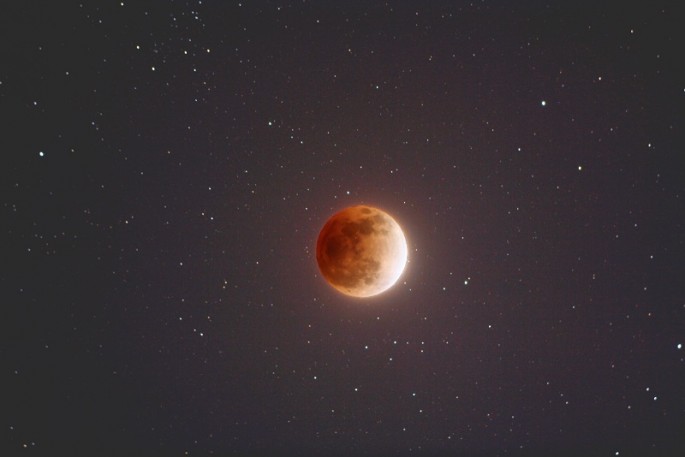A "blood moon" or a total lunar eclipse supermoon will stun and fascinate viewers on the evening of September 27 on Sunday where it will be enveloped by the Earth's looming shadow which marks the fourth time in the past 17 months.
This blood moon lunar eclipse will be visible across more than half the planet, where almost 1 billion viewers in the Western Hemisphere and 1.5 billion spanning Europe and Africa along with 500 million in west Asia will get a glimpse of this Harvest Moon as it morphs and transforms into a colossal, glowing ball of copper.
Apart from this wide range of visibility across all regions on Earth, this lunar eclipse will also become the biggest one this year, since the moon will also reach its perigee on the same day, meaning its closest point to Earth, at 221,753 miles away from the surface of the planet.
Many consider this September 27 event as a supermoon eclipse where the last one that occurred during the moon's perigee coinciding with an eclipse was last 1982, as the next one will happen in 2033.
How to view this spectacular blood moon supermoon eclipse? Most people in the Americas and Western parts of Europe will have a perfect view of this eclipse where the moon will be high enough in dark evening skies especially in the United States and Canada as most people are still awake to enjoy this lunar phenomenon.
However, not everyone in the western U.S. and west central Canada will see the eclipse as the first partial stage will already be happening as the moon rises during sunset this last Sunday of September.
To those who have a low open view of twilight to the east, this will add extra drama as fading twilight can reveal the shadow of the moon slowly coming into view just low above the landscape in the far western regions. During late twilight, viewers will also receive a fantastic view of the of the total eclipse, dimly glowing red located low in the eastern skies.
Even if the moon goes into a total lunar eclipse, the reason why the blood moon is still visible is due to the sunlight scattering around the refracted edges of Earth from the planet's atmosphere.
In remote parts of the U.S., Alaskans will also be lucky enough to see the rising moon during the eclipse where most of eastern Alaska will be able to see the blood moon supermoon totally immersed by the planet's shadow. In Hawaii, the rising moon will unfortunately be seen after the end of the total eclipse where the moon will slowly ascend in the sky from a visible shadow.
Western Europe and Africa will also be able to view this blood moon supermoon total eclipse however on a less convenient time, which is during the last few hours before dawn on Monday morning on September 28.
For the rest of the world who cannot view this blood moon total lunar eclipse, NASA TV will provide a live feed coverage online of the lunar event on Sunday.



























